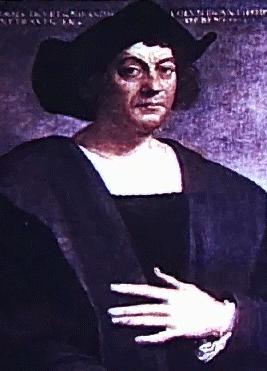Columbus persona non grata in Latin America
 In October 12, many countries in Latin America celebrated the day in which Christopher Columbus first arrived in America, 512 years ago. Indigenous people from all over the region protested as only 10% of them survived the European colonization.
In October 12, many countries in Latin America celebrated the day in which Christopher Columbus first arrived in America, 512 years ago. Indigenous people from all over the region protested as only 10% of them survived the European colonization.
October 12 is Spain’s national day. It is also a remarkable holiday across Latin America as the world commemorates the day in which Christopher Columbus arrived, without noticing it, to the new world. That happened 512 years ago.
Today, American natives from different tribes all along the continent still blame on what is considered by many intellectuals as the first holocaust in world’s history. According to estimations, 40 million people, around 90% of the original population of America, was exterminated by European conquerors.
Countries like Argentina and Uruguay still celebrate what they consider the day of the Spanish Race. Others, like Venezuela have changed the name of October 12 Columbus Day to The Day of Indigenous Resistance. But that happened recently, under the leftist rule of President Hugo Chavez, who, joined by indigenous leaders from across the country, Chavez attended ceremonies to commemorate the national holiday on Tuesday.
In Caracas, where representatives of Venezuela’s indigenous groups urged a mayor to bulldoze a statue of Christopher Columbus in one city’s plaza, government supporters leveled another statue of the Italian explorer to protest the alleged ”genocide” of South America’s natives under colonial rule.
In Argentina, where still survive between 800 thousands and 2 million natives, the government is pushing a bill to rename the holiday to the less irritant: “Day of Civilizations”. On Tuesday, Indian leaders called their fellows to demonstrations to claim for their rights.
Their demands range from the possession of their original territories, bilingual education, the demarcation of “indigenous habitats” and parliamentary representation of indigenous groups.
Similar demands and protests took place in countries like Peru, Ecuador and Colombia, where Indian leader joined a mass demonstration against President Alvaro Uribe’s pro-market reforms.
In Bolivia, where the indigenous population reaches as much as 85% of the national population, some tribes hold long-running rebellions against the ruling European elite. In October last year they became the main opposition to a controversial project to export gas to the United States, which precipitated a popular insurrection that toppled conservative leadership in the country.
Subscribe to Pravda.Ru Telegram channel, Facebook, RSS!




